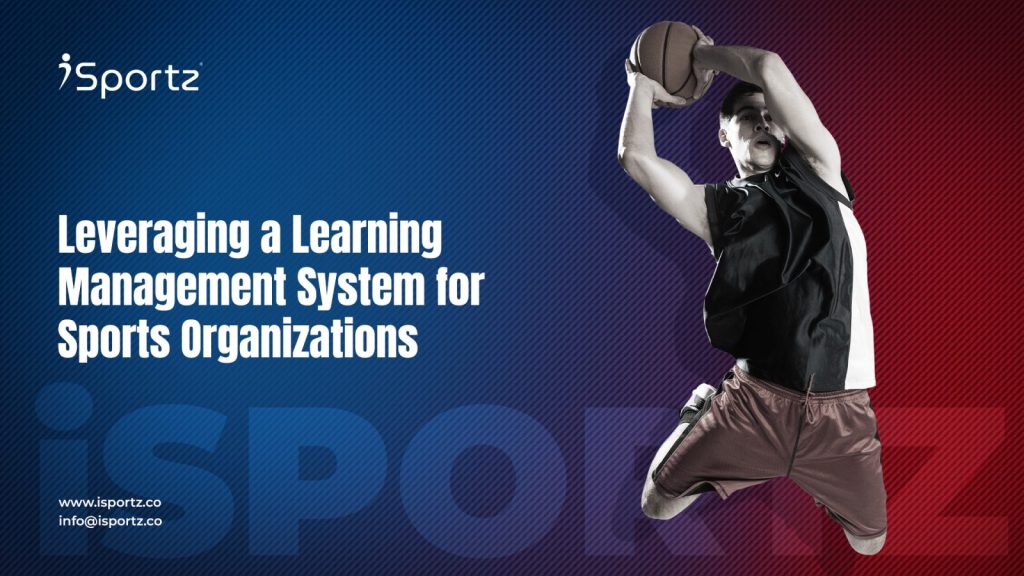Learning sport skills provides a great environment for developing teamwork, leadership, courage, self-respect, and perseverance. The increasing complexity of learning and development programs necessitates the need for a sports learning management system.
Defining a Sports Learning Management System and its features
A Sports Learning Management system (LMS) manages the learning process by providing a central repository for all learning materials, tracking progress and performance, and providing reporting tools to help improve the quality. Sports LMS’ deliver consistent, high-quality training to athletes of all levels. Typically, an LMS includes a range of features and functionality to support the needs of both coaches and athletes.
Below are a few key features of a sports LMS:
Customized learning: A sports LMS provides customized learning programs. Every athlete is different and will require different types of learning programs to reach their full potential.
Track data: A sports LMS tracks progress and results to understand how athletes perform and where they need to improve.
Support and Resources: A good sports LMS offers support and resources for coaches and athletes, which includes access to video analysis tools, tips and tricks from experts, and educational articles on various aspects of the sport.
Performance metrics: A sports LMS has adequate tracking and reporting tools to help coaches and athletes analyze their learning needs and progress over time.
Learner Dashboards: A sports LMS organizes courses, lessons, and assignments and tracks the performance of learners.
The Need for a Sports Learning Management System
Most learning management systems are aimed at businesses and schools; only a few are tailored to the needs of athletes, parents, coaches, and officials. Sports organizations with a learning management system may need help to keep up with the latest educational developments in their field. With a learning management system, it can be easier to track learning progress and ensure that everyone is completing their courses. There’s no easy way to provide learners with feedback or measure the learning program’s effectiveness without a learning management system.
Benefits of a Learning Management System
An LMS offers many benefits for athletes, coaches, and sports organizations and is a complete, turn-key solution for managing learning needs. Some benefits of LMS include the following:
- Organize and centralize all learning activities
- Track learner progress and performance.
- Reduce the cost of learning and development.
- Stay up-to-date on compliance regulations.
- Save time with flexible learning
- Monitor learning performance and setting goals
- Enable creation, management, and delivery of courses
An LMS can be a valuable asset for any size sports organization, facilitating the management of the learning process and delivery of educational content.
How to choose the right Learning Management Software for your organization
Sports team managers and coaches understand the importance of athletes receiving appropriate learning. However, picking the right one for your sports organization takes time and effort.
Here are a few things to consider when choosing a Sports LMS:
Ease of use: When choosing a sports learning management system, ease of use is vital. The LMS should be easy to navigate and use so that learners focus on training and not waste time figuring out how to use the system. Looking for a system with a user-friendly interface and intuitive controls is essential. And it should be able to integrate with other systems and technologies the organization uses.
Scalability: A sports learning management system (LMS) must be able to handle a large number of users and information. It should be able to scale up or down as needed to accommodate changes in the number of users and the amount of data. The system should also be able to handle different types of data, such as video, audio, and text.
Modularity: A modular LMS can be easily customized and configured to meet the organization’s specific needs by adding or removing modules as needed without having to start from scratch or overhaul the entire system.
Functionality: For a Sports Learning Management System (LMS) to be effective, it must have robust functionalities that meet the needs of all the stakeholders.
Conclusion
A learning management system is a valuable asset for sports organizations, coaches and athletes. Hence it is essential to choose a Flexible SaaS Learning Management Software that delivers knowledge and provides an adaptable e-learning platform.




